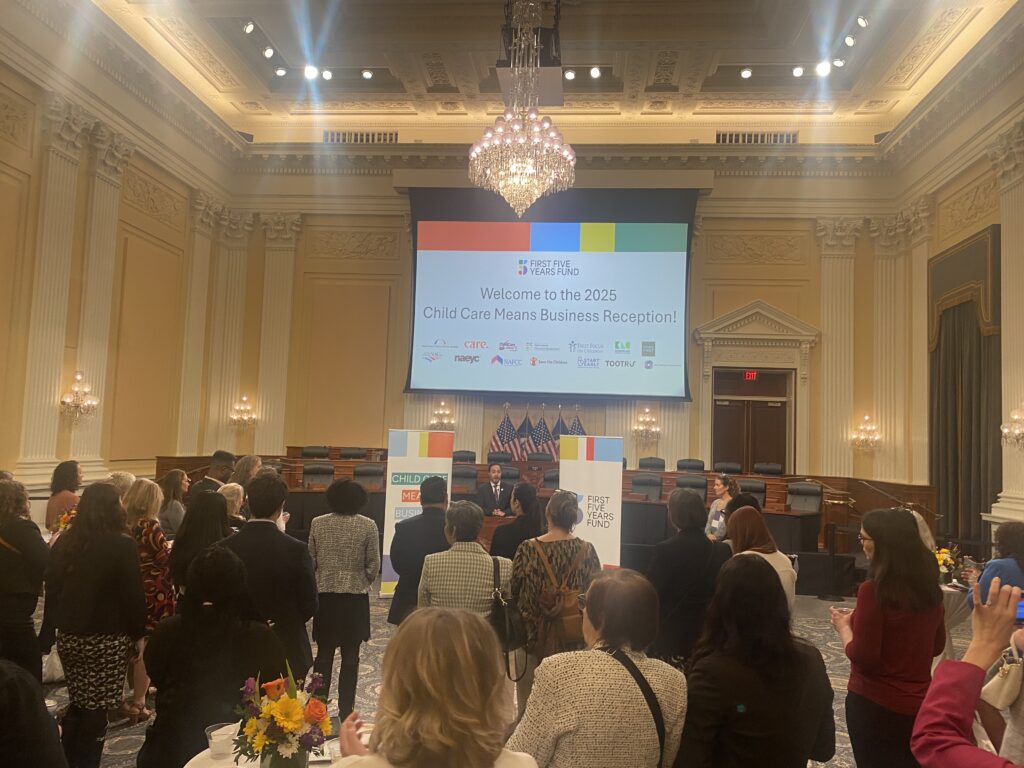House Appropriations and Ways & Means Democrats Introduce Child Care Recovery Legislation

Yesterday, House Appropriations Committee Chairwoman Nita M. Lowey (D-NY), House Ways and Means Committee Chairman Richard E. Neal (D-MA), Worker and Family Support Subcommittee Chairman Danny K. Davis (D-IL), Congresswoman Katherine Clark (D-MA), Vice Chair of the House Democratic Caucus, Congresswoman Rosa DeLauro (D-CT), and Congresswoman Linda T. Sánchez (D-CA) introduced H.R. 7327, the Child Care for Economic Recovery Act. Through increased federal funding and tax subsidies, the bill would increase ongoing access to safe, affordable child care, which is essential for parents and caregivers to return to work, and would help child care providers to reopen and make vital facilities improvements to ensure the health and safety of children and staff.
Specifically, the bill would include:
- $10 billion for the Child Care Development Fund (CCDF) to establish grants to states to construct, renovate, or improve child care facilities, including adapting, reconfiguring, or expanding facilities to respond to COVID-19. Grants would also be available to intermediary organizations with experience in child care facilities financing, for the purpose of providing technical assistance, capacity building, and financial products to develop or finance child care facilities.
- An increase of the Child Care Entitlement to States, the mandatory portion of CCDF, from $2.9 billion to $10 billion per year, starting in 2020 and continuing through 2024.
- $850 million for the Social Services Block Grant to fund child and family care for essential workers, including health care sector, child care, emergency response, and sanitation workers and other workers deemed essential by state or local officials, regardless of income.
- Amendments to tax provisions that benefit families with children, including changes to the Child and Dependent Care Tax Credit and dependent care flexible spending accounts, as well as $5 million for the Internal Revenue Service’s Volunteer Income Tax Administration Matching Grant Program (VITA) to expand access to tax preparation assistance for lower income filers who would be impacted by changes made in this bill.
“Without access to safe, affordable child care, American workers simply won’t be able to return to their jobs. Ensuring this care is available for families is essential for our economy’s reopening,” said Ways and Means Chairman Neal. “The Child Care for Economic Recovery Act recognizes the critical role child care plays in our nation’s economy. Through bold federal investments and tax incentives for working families and employers, we make the availability of safe, affordable care both a priority and a reality. This legislation is a key piece of our nation’s economic reopening strategy, and I urge its swift passage in both the House and Senate.”
“Coronavirus has exacerbated America’s child care crisis. Millions of working families around the country are struggling to access the quality, affordable child care needed for a return to work and the reopening of the U.S. economy,” said House Appropriations Committee Chairwoman Nita M. Lowey. “The Child Care for Economic Recovery Act improves access to quality child care during and beyond the coronavirus pandemic. Through smart, bold federal investments and tax provisions, the legislation will bring much-needed relief to financially struggling child care providers, to families who need child care so they can return to work, and to the U.S. economy, which depends on a fully engaged workforce and quality early childhood education.”
“Prior to the pandemic, federal funding only provided child care for one in six eligible children,” said Congressman Davis. “Parents in communities weighed down by poverty and systemic racism experienced a shortage of high-quality, affordable child care. Today, we face a global pandemic that has disproportionately infected and killed people in these same struggling communities, and the child care crisis we had before is now much, much worse. Now is the time for this Congress to take meaningful action to ensure that high-quality child care is available to all who need it.”
“Child care is a key component of our country’s economic infrastructure but, for too long, we’ve failed to treat it that way. Now, the coronavirus has brought this vital sector of our economy to its breaking point,” said Congresswoman Clark. “By expanding access to care and easing the financial burdens placed on parents and employers, we can reopen and recover from this public health crisis without leaving kids, parents, and businesses behind. We must act quickly to pass this legislation.”
“There can be no return to normal for our families if children cannot return to child care. The COVID-19 pandemic has amplified the importance of high quality, affordable child care for millions of working families across our country and has pushed our already struggling child care system to the brink of disaster,” said Congresswoman DeLauro. “If families don’t feel confident that their kids are going to be in a safe and secure learning environment, we’re not going to get our economy back on track. The Child Care for Economic Recovery Act sets our nation on a path to improve child care during this crisis and beyond.”
“Working families across the country were scraping by with child care expenses before their lives got turned upside down by a deadly pandemic,” said Congresswoman Sánchez. “Now, we are asking workers – many disproportionately impacted by the virus – to return to the job site without any solution for how their kids will be cared for going forward. We desperately need safe, widespread, affordable child care, and this legislation rises to meet that challenge. Congress must act quickly to make a serious investment in child care, which is critical to our economic recovery.”
This legislation joins other proposals introduced by members of both parties and both chambers acknowledging that significant and dedicated assistance is necessary if the child care industry is to survive the devastating impact of the economic crisis. Without substantial, specific relief that addresses the range of issues being faced by child care providers and the families they serve, there may not be a child care industry left to keep America working. Going forward, FFYF will continue to collaborate with members on both sides of the aisle to ensure that they understand the tremendous needs of the child care industry.
Subscribe to FFYF First Look
Every morning, FFYF reports on the latest child care & early learning news from across the country. Subscribe and take 5 minutes to know what's happening in early childhood education.



